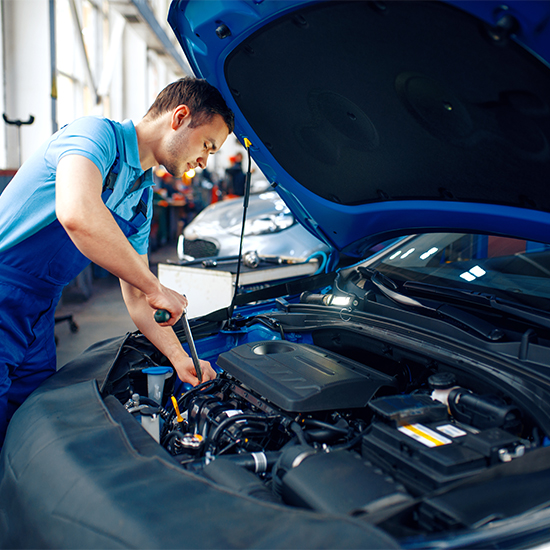All Categories
Featured
Your car's brakes are one of one of the most vital components in guaranteeing your safety and security and the safety of others on the roadway. Regular brake evaluations are important to keeping ideal braking performance and avoiding pricey repair work. Whether you're a seasoned automobile proprietor or a new driver, comprehending brake examination standards can help you remain aggressive about upkeep and ensure your lorry is always roadworthy.
- Why Brake Inspections Issue. The even more you drive, the a lot more friction your brake pads withstand, at some point leading to minimized braking performance. Without appropriate examination, it's difficult to gauge when your brakes may be in need of repair service.
A properly maintained brake system ensures quick, receptive stopping power, especially in emergencies. It additionally assists prolong the life of your automobile, as ignoring brake upkeep can cause a lot more severe, expensive problems later on.
- Indicators You Required a Brake Inspection. While it's essential to have your brakes examined regularly, certain indicators might indicate that they need focus. Maintain an eye (and ear) out for these warning signals:
Squealing or Grinding Sounds: Unusual noises, especially a piercing screech or grinding noise, typically suggest that your brake pads are used down. Resonance or Pulsation: If you feel vibrations or a pulsing experience when pressing the brake pedal, it might be an indication of distorted rotors or uneven brake pad wear. Lowered Brake Responsiveness: If your brakes feel less responsive or you have to push the pedal harder to reduce down, it may suggest air in the brake lines or reduced brake liquid. Pulling to One Side: If your lorry draws away when stopping, it can suggest unequal brake pad wear or a brake liquid leak. Control Panel Caution Lights: Some automobiles have brake-related warning lights that suggest issues like low brake fluid or used brake elements. If you notice any of these signs, it's essential to have a professional mechanic do a brake assessment asap.

- What Happens During a Brake Examination? Throughout a brake assessment, a mechanic will certainly inspect several essential elements of the stopping system to make sure everything remains in working order. Below's what you can anticipate during the procedure:
Brake Pads and Shoes: The auto mechanic will evaluate the density of the brake pads or shoes. If they're also slim, they'll need to be replaced. Brake Rotors: Blades are the discs that the brake pads press against to slow your car down. They'll be checked for any kind of signs of wear, scoring, or warping. Brake Fluid: Low or polluted brake fluid can impair braking performance. The service technician will certainly inspect the liquid degree and quality and leading it up or purge it if essential. Brake Lines and Pipes: Brake lines carry liquid from the master cyndrical tube to the brakes. The technician will check for any leaks, cracks, or damages to ensure correct fluid flow. Brake Calipers and Wheel Cyndrical Tubes: Calipers and wheel cylinders push the brake pads against the blades or drums. The professional will certainly look for wear, leaks, and correct operation. 4. How Commonly Should You Have Your Brakes Evaluated? The regularity of brake inspections relies on variables like your driving practices, the kind of vehicle you drive, and the environment in which you drive. As a basic rule, it's an excellent concept to have your brakes evaluated every 12,000 miles or once a year. If you experience any of the warning signs stated previously, it's vital to get your brakes checked immediately.
For those that often drive in rush hour, mountainous surface, or rough climate condition, even more constant evaluations may be necessary.
- Importance of Timely Brake Repairs. When you spot a trouble with your brakes, it's important to resolve it today. Delaying brake repair work can bring about even more substantial damages to your stopping system, resulting in greater fixing expenses. In extreme situations, overlooking brake concerns can cause finish brake failing, which is a severe safety and security danger.
By remaining on top of brake maintenance and dealing with concerns without delay, you ensure that your brakes proceed to carry out as meant, keeping you and your travelers secure on the roadway.
Final Thought: Maintain Your Brakes in Top Shape. Brake evaluations are a simple yet crucial component of car upkeep. By recognizing the significance of normal examinations, understanding the indications of brake issues, and staying positive with repair work, you can guarantee your automobile's stopping system stays in optimum condition.
Latest Posts
Explore Cost-Effective Auto Repairs with Montclare’s Limited-Time Service Specials
Join WyHy FCU – Essential Perks for Your Financial Future
Explore the Storied Past of Deauville Inn: From Speakeasy to Jersey Shore Icon
More
Latest Posts
Explore Cost-Effective Auto Repairs with Montclare’s Limited-Time Service Specials
Join WyHy FCU – Essential Perks for Your Financial Future
Explore the Storied Past of Deauville Inn: From Speakeasy to Jersey Shore Icon
